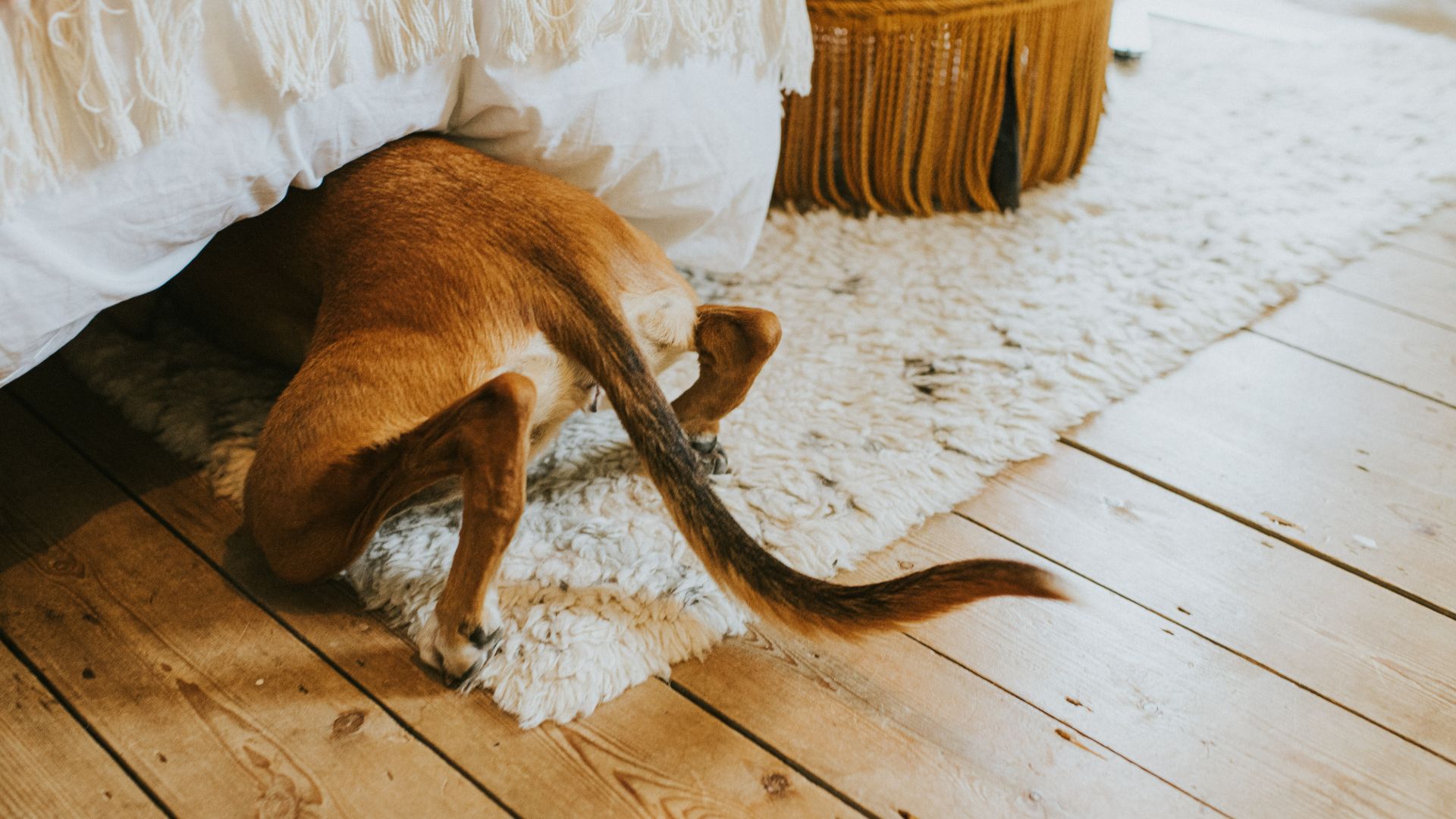
Why do dogs lick their butts? Let’s be honest, it’s kind of gross. But there are several reasons that your pup might be doing this. Your dog may be licking their butt as a part of their normal cleaning regime or this may be a sign of a possible health concern.
Surprisingly, it could also be down to allergies. If this is the case, switching your pup to one of the best dog foods for allergies may help. We spoke with vet, Dr.Hannah Godfrey and she covered everything you need to know about this interesting and slightly gross habit.
Why do dogs lick their butts?
1. Anal gland issues
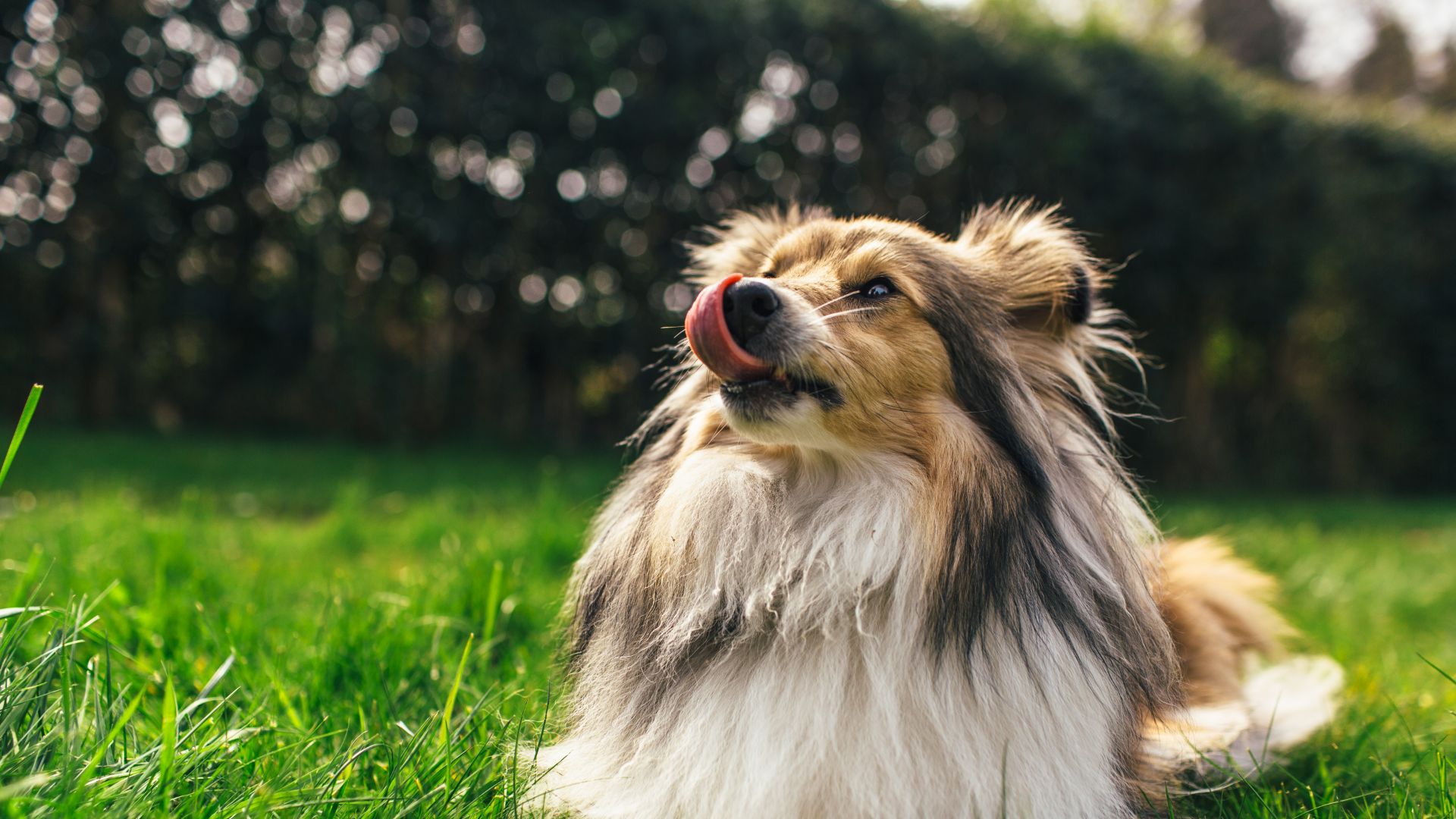
If your dog is licking its butt incessantly, they could be dealing with an anal gland issue. While we outline exactly why your dog smells like fish, and explain anal sac disease in another piece, you should definitely consider this as a possible reason for your dog's yucky behavior.
In case you didn't know, your pup has anal glands (also known as scent glands) on either side of their rectum. The purpose of these glands is to produce a very strong odor that your dog expresses as fluid in very small amounts to mark their territory.
Occasionally they can stop functioning the way they should and become clogged with excess fluid. When this happens, your dog may lick or bite at their butt to try and find relief.
Dr. Hannah Godfrey says, ‘I see a lot of dogs as a vet who are licking their butt because their anal glands are full or infected. This cause can be easy to spot in some dogs because they might be scooting (dragging their butt along the floor) and there might be a fishy smell. You might also notice saliva-stained fur or bald patches on one side of their tail or a swelling near their butt.’
If you notice any of these habits or symptoms, it is important to make an appointment with your vet right away.
2. Parasites and worms
Your dog could be licking their rear because of a parasite problem. Hookworm and roundworm are two of the most common illnesses dogs can get. They can be passed from an infected dog to your dog via feces. If your dog accidentally ingests feces or licks their feet after stepping in it, they could get either hookworm or roundworm.
Tapeworm is also a possibility, though it's not as common as your dog would have to ingest a tapeworm-infected flea while grooming. If you regularly treat your pup with one of the best flea treatments for dogs, tapeworm is less likely to be the culprit.
One of the common problems associated with parasites and worms is that they can cause loose stools and diarrhea, both of which can not only prevent the anal glands from expressing properly but can also cause irritation around your dog's anus itself - hence the licking.
Your vet will need to do a fecal test to determine if your dog does indeed have parasites and/or worms and if the test comes back positive, they'll be able to advise you on the best course of action.
3. Allergies
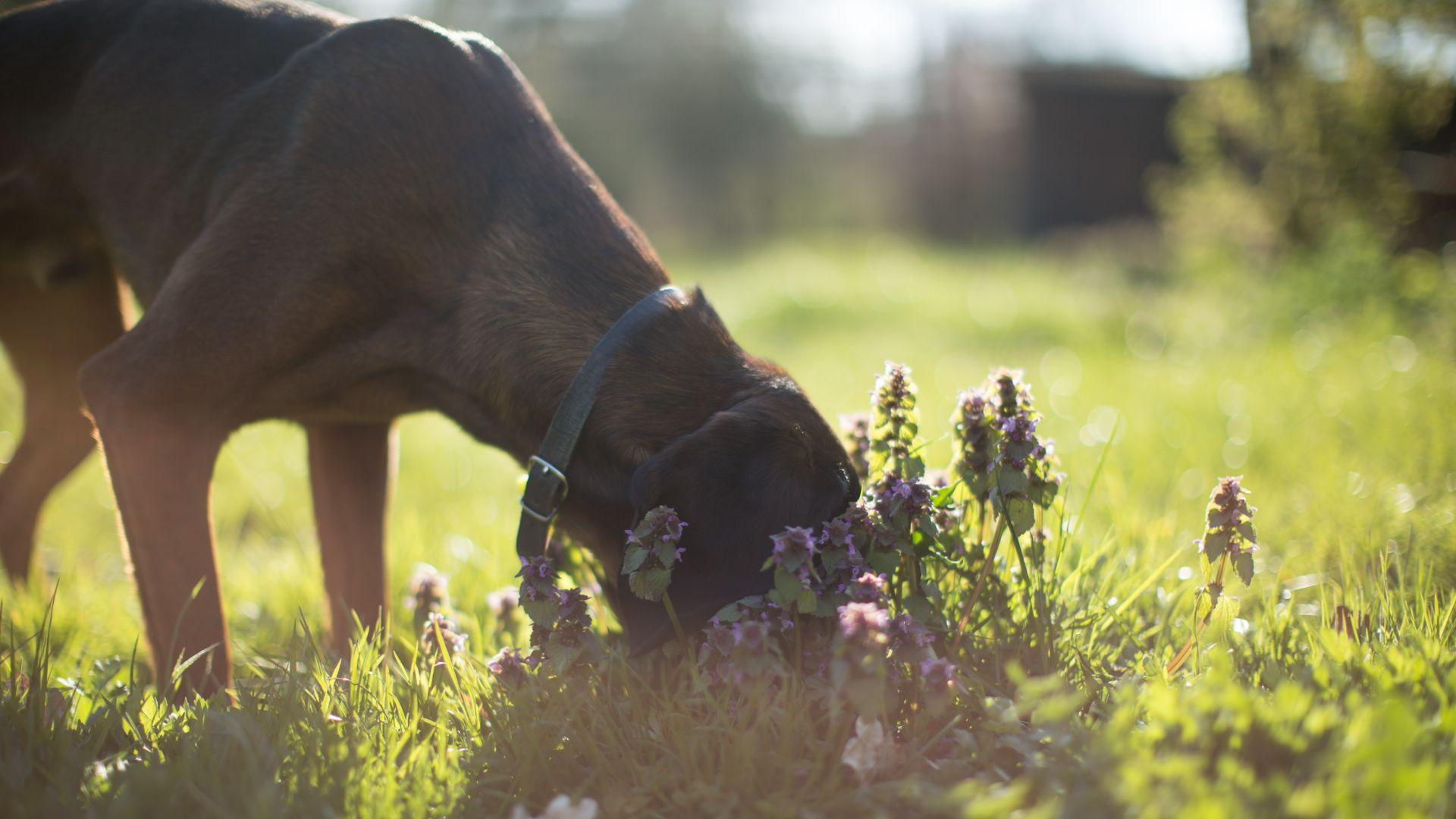
Your dog may be licking its butt because of an allergy. Generally, there are two types of allergies that dogs are most susceptible to, those triggered by something in their environment and those that are caused by certain ingredients in the food they're consuming.
Seasonal allergies in dogs can be caused by pollen during the spring and summer as well as things like mold that your pup may be coming into contact with around the home. Food allergies in dogs occur when your dog responds negatively to a certain ingredient in their diet. Common triggers include chicken, beef, eggs, gluten and soy.
If your dog is having a reaction to something, their skin can get red, dry, itchy, and inflamed pretty much anywhere on their body - including the skin around their anus. You may also notice other symptoms, such as watery eyes, a runny nose or chronic ear infections.
4. Skin infections
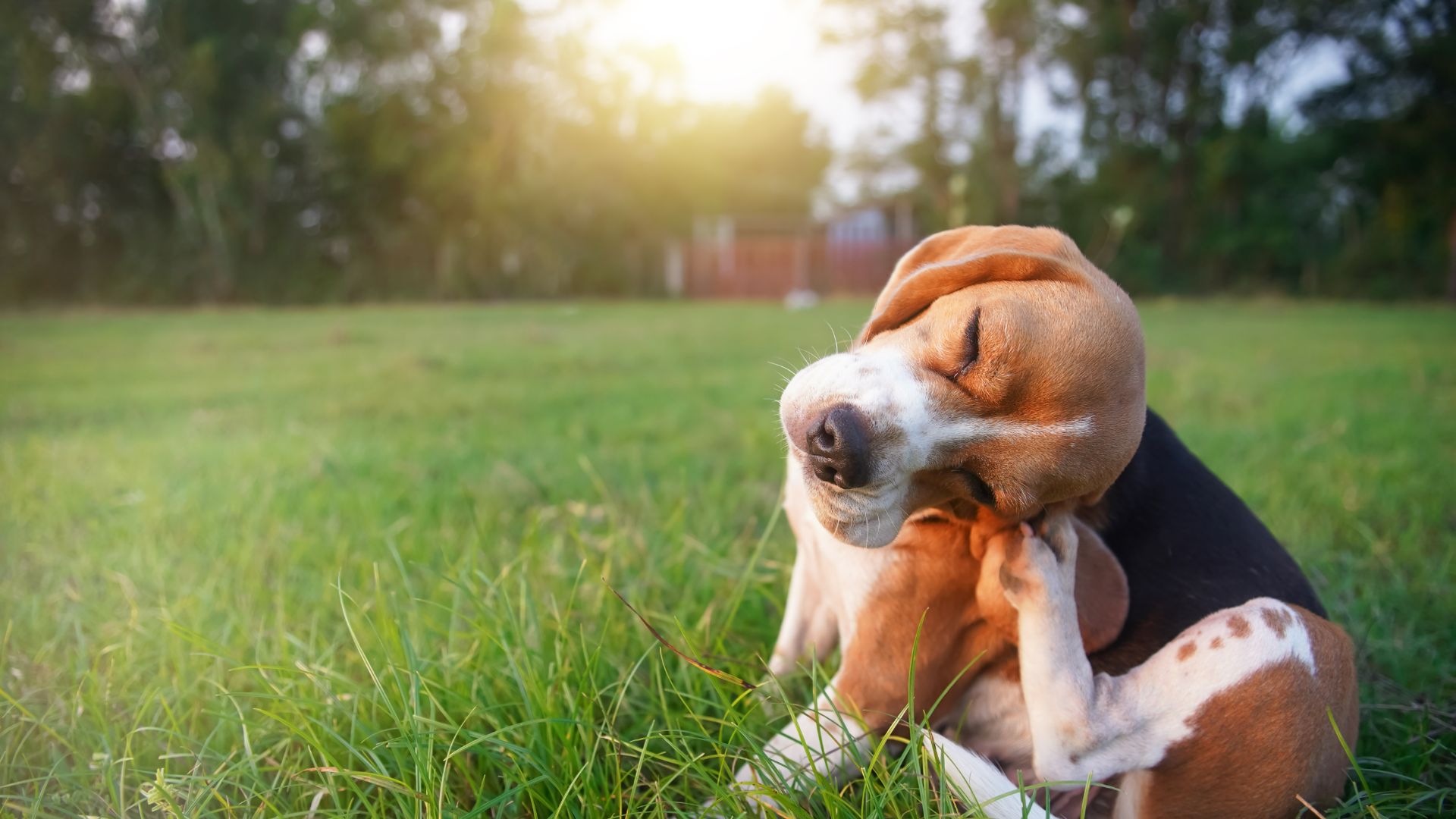
When it comes to butt-licking, skin infections are another possible cause. Your dog could have a bacterial or fungal infection in the skin around its rectum, either from an open wound that got infected or because of long-term exposure to feces (basically if poop stays by their butt for too long).
If you notice swollen or red skin and see your dog trying to chew or lick their anus, there may be a skin infection involved. You'll want to take your dog to the vet to get a proper diagnosis and treatment plan as there are two types of skin infections - primary and secondary, the latter of which may be being caused by another issue, such as parasites or allergies.
Dr. Hannah Godfrey advises checking your pups anus daily to ensure the skin isn’t red, sore and clean.
How do I stop my dog licking their butt?
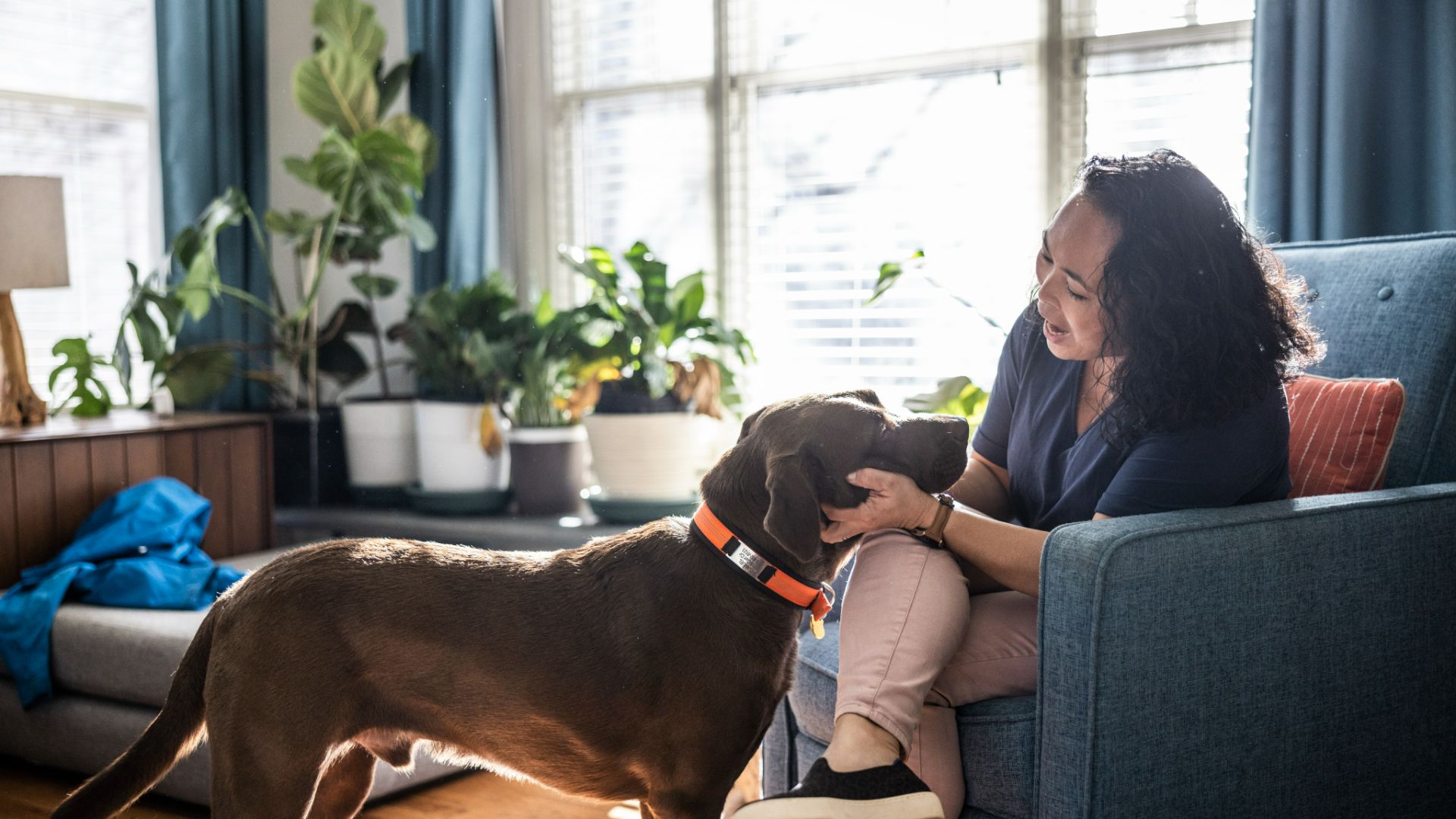
The first thing you want to do if you notice that your pup has begun to lick their butt excessively is to schedule an appointment with your vet. They'll be able to conduct any tests that they deem necessary, and, depending on the result, formulate an appropriate treatment plan.
If the issue ends up being related to the anal glands and they're full, your vet will be able to express these to help your dog feel more comfortable again and they may also prescribe antibiotics if all that licking has led to a skin infection.
A stool check will quickly be able to determine whether any parasites are present and the good news is, they're easy to treat with a dewormer. Once again though, antibiotics may be required if the excessive licking has resulted in an infection.
Blood tests are available for food and environmental allergies, but food allergies can be quite tricky to diagnose at times as the blood test results for these aren't always accurate. If your vet suspects a food allergy, they'll likely recommend a prescription diet to see if that addresses the problem.
If all of these are ruled out, you may have to consider that this is a behavioral problem. Consult a behaviorist or dog trainer to help figure out how to work with your dog to fix this behavior.
If you found this article helpful you may want to check out Is your dog sneezing all the time?







